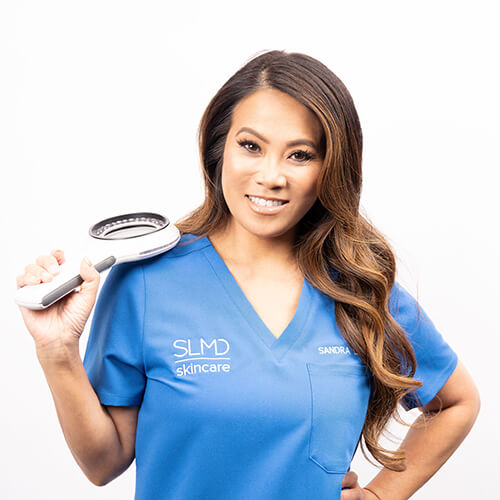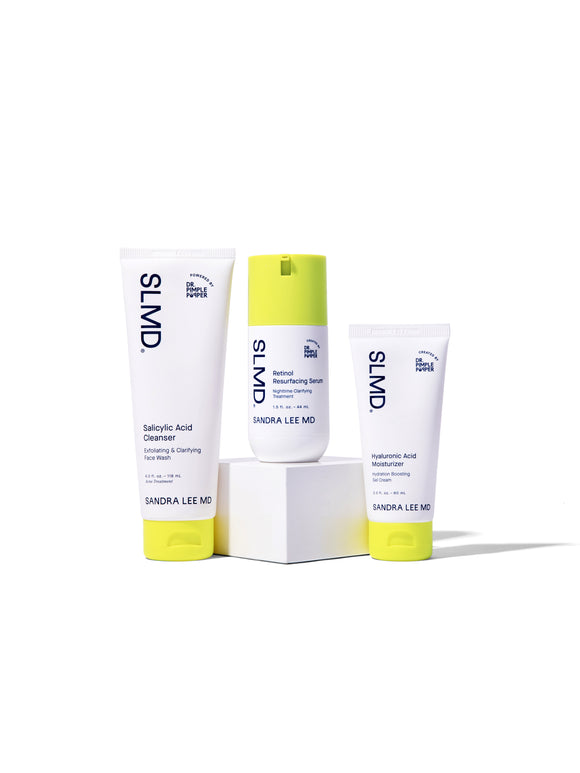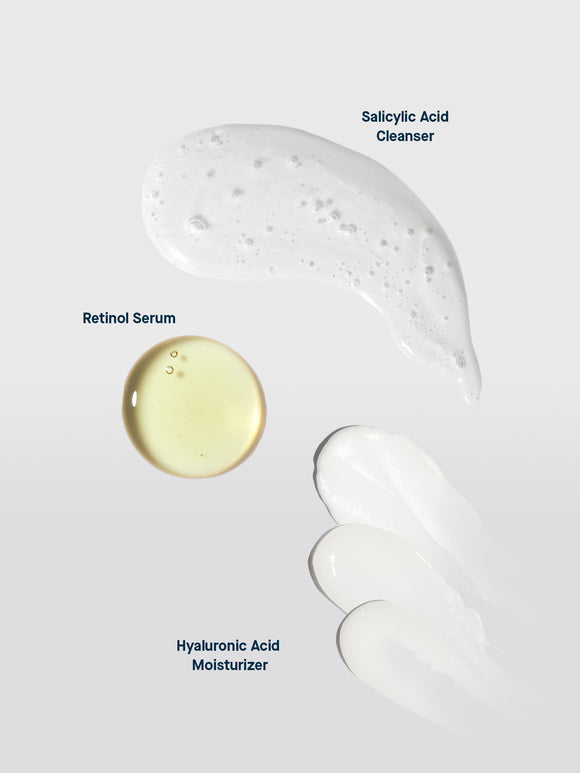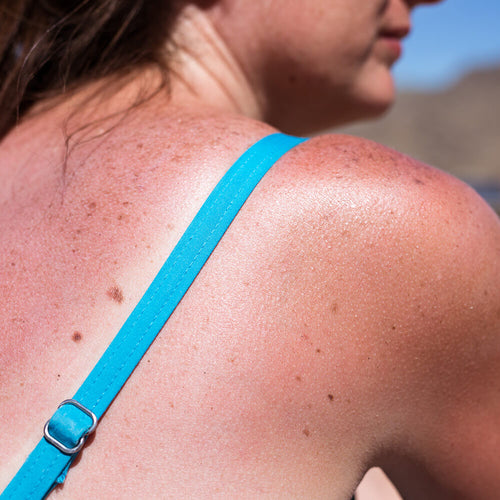
Dr. Pimple Popper's Perspective: Sunscreen
Most of us know that sunscreen is important for skin health. But despite all of the awareness, many of us have questions: do we need to use it every day? Does it matter what kind we choose — and is a higher SPF better? We asked Dr. Sandra Lee (aka Dr. Pimple Popper) to shed some light on the subject of sunscreen.
Published:
4 minute read
Unless you’re living in a cave — literally — you’re at least vaguely familiar with the fact that wearing sunscreen is important for skin health. But despite all of the awareness, many of us have questions: do we really need to use it every single day? Does it matter what kind we choose — and is a higher SPF actually better?
Time to call in the dermatologist: we asked Dr. Sandra Lee (aka Dr. Pimple Popper) to shed some light (couldn’t resist) on the subject of sunscreen.
Article Quick Links
Why is sunscreen so important?
DPP: Let’s back up a minute and talk about UV rays, and how they damage your skin. There are two types of ultraviolet radiation from the sun that we need to think about:
- UVA rays: these penetrate into the dermis and are responsible for the long term damage we call photoaging (like wrinkles, hyperpigmentation, and loss of elasticity).
- UVB rays: they’re shorter in wavelength, and only reach the epidermis, but these are the ones that cause a sunburn.
Both of these types of rays cause DNA damage when they penetrate into your skin. Our bodies are designed to correct that damage, but sometimes it’s just too much over time — this is how we get things like skin cancer. Sunscreen is like a shield that prevents this UV radiation from damaging our skin, so it’s an incredibly valuable tool for maintaining skin health.
How does sunscreen work?
DPP: There are essentially two categories of sunscreens. They protect your skin in slightly different ways:
- Mineral or physical sunscreens (like titanium oxide and zinc oxide) work by both neutralizing and reflecting rays.
- Chemical sunscreens (like avobenzone) absorb and neutralize the rays, releasing heat
Whether you choose a mineral or a chemical sunscreen is mostly a matter of preference, though for pregnant women and very young children dermatologists generally recommend mineral versions. I always say, the best sunscreen for you is the one you're going to be comfortable using every day.
What does SPF mean?
DPP: People tend to assume that the Sun Protection Factor tells us how long we can stay in the sun without burning. While there’s some truth to that, it isn’t the best way to look at it, because everyone’s skin reacts differently to UV radiation. It’s more accurate to say that SPF 15 means that for every 15 UV rays, only one gets through to damage your skin. This translates into blocking 93% of harmful rays. SPF 30 blocks 97% of UV damage.
Now this does not mean you get a free pass to stay out in the sun all day long because you put on sunscreen. Something that most people don’t realize is that SPF is a measure of UVB rays only — not UVA rays, which are the ones that cause premature aging. The longer you’re exposed, the more damage you’re doing to your skin, even if you’re wearing sun protection. This is why you need to look for broad-spectrum sunscreen, like in my new Dual Defender SPF 30: that’s going to protect against both types of UV rays.

Do you really have to wear sunscreen everyday?
DPP: People always want to know if they have to wear sunscreen in the wintertime, or when it’s cloudy — and the answer is yes. It’s always yes: even if you’re indoors, and this is because during the daylight hours, radiation is always reaching our skin. Remember it’s not just sunburn we’re trying to avoid, it’s things like dark spots and wrinkles and most concerningly, skin cancer.
And you do have to reapply. UV rays are very powerful, and they basically break down those protective chemicals — and when you’re swimming, or sweating, that happens even faster. So reapply at least every couple of hours. That means if you’re going to the beach for 6 hours, you’re reapplying about 3 times or more if you’ve been in the water a lot.
How much sunscreen do you need to apply?
DPP: This is one thing that’s extremely important and people typically don’t realize how much sunscreen they need to be using. If you’re not applying enough, you’re not actually getting the SPF level that’s listed on the label. I take about two finger lengths of my Dual Defender — which seems like a lot, but it’s for my whole face, my neck, and my ears, too.
Skin cancer likes to hide behind the ears so we have to be diligent about that. I also take a little and rub it on the backs of my hands, because that’s where we tend to see signs of premature aging popping up too.
Does sunscreen make you break out?
DPP: I get this question a lot — because for people with acne-prone skin, the answer is often yes. That’s because many sunscreen products contain occlusive ingredients, which means they clog your pores, which as we know is the beginning stages of active acne. So you need to find one that’s lightweight and non comedogenic, and that was something very important to me when creating a sunscreen for SLMD.
My Dual Defender is a combination lightweight moisturizer and broad-spectrum SPF sunscreen that also contains antioxidants like grapefruit and green tea extracts. They help neutralize some of the free radicals from UV rays that can cause DNA damage. What I love is that it’s formulated for all skin types — so anyone with oily or acne-prone skin doesn’t have to worry about choosing between managing their breakouts and sun protection.

Dr. Lee's Last Word
If I had to recommend just one skincare product, it would be sunscreen. It’s essential for skin health, to help prevent skin cancer, and also the best way to protect against premature aging — which is caused by long-term UV damage.






